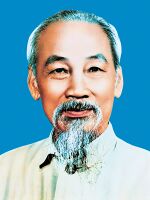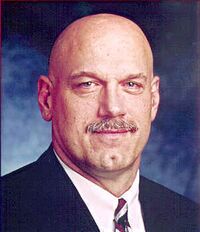Chancellor of Sel Appa
| Chancellor of Sel Appa | |
|---|---|
| Chancelier du Sel Appa | |
| Member of | Parliament |
| Reports to | Parliament |
| Appointer | Parliament |
| Term length | Five years, renewable |
| Inaugural holder | Ngu Phuok Dinh |
| Formation | 2005 |
The chancellor of Sel Appa (French: chancelier du Sel Appa) is the head of government of Sel Appa. The chancellor governs with the confidence of a majority of the elected Parliament; as such, the chancellor sits as a representative of Parliament and leads the largest party or a coalition of parties. The chancellor selects ministers to form the Cabinet. Three people have served as chancellor, the current being François Tourmont since 2011.
History
The office of chancellor was established with the first constitution in 2005. The inaugural holder was Ngu Phuok Dinh, who bridged the gap from monarchy to republic, set the first precedents, and established the role. Over time, the inadequacies of the constitution became apparent and Dinh pushed for dissolution of parliament, a new election, and a new constitution, finally succeeding in 2010. While serving only one term, he left a mark solidifying the office as the head of government and state, despite reestablishing the monarchy.
Dinh was unexpectedly succeeded by John Hammond, a Monarchist, who led a caretaker government while Parliament wrote a new constitution. Despite serving less than a year, he left his mark as a neutral arbiter between the parties. The third chancellor, François Tourmont, solidified the role during his fourteen years in it. Tourmont led Sel Appa in a more free market direction during three parliaments, as well as the Russian secession towards the end of his term. He also survived the first no confidence vote in 2020, and almost faced a second.
Election
The chancellor must be an elected member of parliament, and is usually the leader of the largest party or coalition. To be elected, the parties sign pre-coalition agreements and once one has achieved a majority, they are formally voted on, and the leader nominated becomes chancellor. During the election period, the incumbent chancellor presides over parliament and the election, even if no longer a member. This often means a chancellor will oversee their own reelection or replacement. If no pre-coalition agreement achieves a majority, it is possible to have a minority government. Other parties may supply confidence formally or informally. If confidence fails, parliament is dissolved and a new parliament election must be held. Until the second constitution, it was impossible to dissolve parliament, so the constitution had to be amended to allow that, so new elections could be held to write a new constitution.
Role
As head of government, the chancellor runs the day to day operations of the government of Sel Appa. Legally, the chancellor presides over parliament, but often the role is deputized. Until its abolition, the grand archduke and chancellor served jointly as head of state, representing Sel Appa to the world. Given the minimal role of the monarch, the chancellor usually would appear.
List of Chancellors of Sel Appa
| No. | Name | Portrait | Party | Term began | Term ended | Parliament | Government | |
|---|---|---|---|---|---|---|---|---|
| No. | Composition | |||||||
| 1st | Ngu Phuok Dinh |  |
Communist | 2005 | 2010 | 1st | 1st | |
| 2nd | John Hammond |  |
Monarchist | 2010 | 31 March 2011 | 2nd | 2nd |
Minority: Supply:
|
| 3rd | François Tourmont |  |
Liberal | 1 April 2011 | Incumbent | 3rd | 3rd | |
| 4th | 4th | |||||||
| 5th | 5th | |||||||
| 6th[b] |
Minority: Supply: | |||||||
| 4th | Kristina Leno | File | DSU | 1 April 2025 | Not yet canon | 6th | 7th | |
| 8th[c] | ||||||||
| 5th | [[]] | File | Example | Example | Example | Example | Example | Example |
- ↑ After the Monarchist Party and Russkiy Golosa signed a third pre-coalition agreement to break the gridlock, the Right pre-coalition agreement agreed to supply confidence. The Left pre-coalition agreement ultimately agreed as well, creating a Roundtable unity government of all parties.
- ↑ After defecting on a confidence vote in 2020, 31 Liberal representatives were expelled from the party. They formed a bloc known as Independent Liberals and sat in opposition for the rest of the term. Russkiy Golosa abstained on that confidence vote, and subsequently pledged supply on any future confidence votes, creating Sel Appas second minority government.
- ↑ Frustrated with Leno pushing social changes, Greg Andrews and seventy other DSU representative broke off and started the Workers Party, focused strictly on social economic reforms. They remained in the government coalition for the rest of the term.
